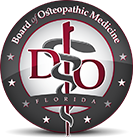Stress is a common occurrence in everyday lives. Whether it is running late for work because of unforeseen circumstances, trying to find time to practice healthy habits, or not being able to take a break from your hectic schedule, stressors are difficult to avoid. While some form of stress is healthy and even necessary to help us perform and react during times of crisis, prolonged and excessive stress can have damaging effects, leading to burnout or depression.
Those within the health care industry often joined their profession to find compassion and satisfaction from helping others. While that is frequently the case, it’s no surprise that at one time or another, health care professionals find themselves working under significant stress. While all health care practitioners can be at risk for burnout as a result of work, those who care for seriously ill patients face a higher risk for diminished personal wellbeing, burnout, moral distress and compassion fatigue. In addition, those caring for terminally ill patients often don’t recognize the personal emotional toll it takes, and these unexamined emotions could lead to professional loneliness, loss of professional sense of meaning, loss of clarity about the goals of medicine, cynicism, hopelessness, helplessness, frustration, anger about the health care system, loss of sense of patients as human beings, increased risk of burnout, and depression.
The problem is that depression doesn’t show up on an X-Ray or an MRI and can oftentimes be difficult to detect. So how do we know where healthy stress ends and overload begins? Every person experiences moments of sadness or struggle, however depression is more than just sadness. People with depression may experience a lack of interest and pleasure in daily activities, significant weight loss or gain, insomnia or excessive sleeping, lack of energy, inability to concentrate, feelings of worthlessness or excessive guilt and recurrent thoughts of death or suicide. As health care professionals it is critical to recognize and be aware of these symptoms, both in our personal and professional settings. Failure to recognize these symptoms could not only adversely affect your patients’ lives, but your own as well.
Fortunately, there are ways to manage stress to prevent burnout through self-care strategies. Self-care strategies begin with the recognition that people have multiple personal dimensions to attend to in order to live a good or happy life. These dimensions include family, work, community and spirituality. Strategies for personal self-care include prioritizing close relationships such as those with family; maintaining a healthy lifestyle by ensuring adequate sleep, regular exercise, and time for vacations; fostering recreational activities and hobbies; practicing mindfulness and meditation; and pursuing spiritual development. Another strategy is that of positive psychology. Positive psychology focuses on utilizing traits such as kindness, optimism, generosity, gratitude and humor. Not only will utilizing these traits lead to a happier self, they also help to build personal resilience and buffer stress.
While self-care strategies serve as important tools, it may also be helpful to meet with your primary care provider who can determine whether you can benefit from a referral to mental health specialist.





